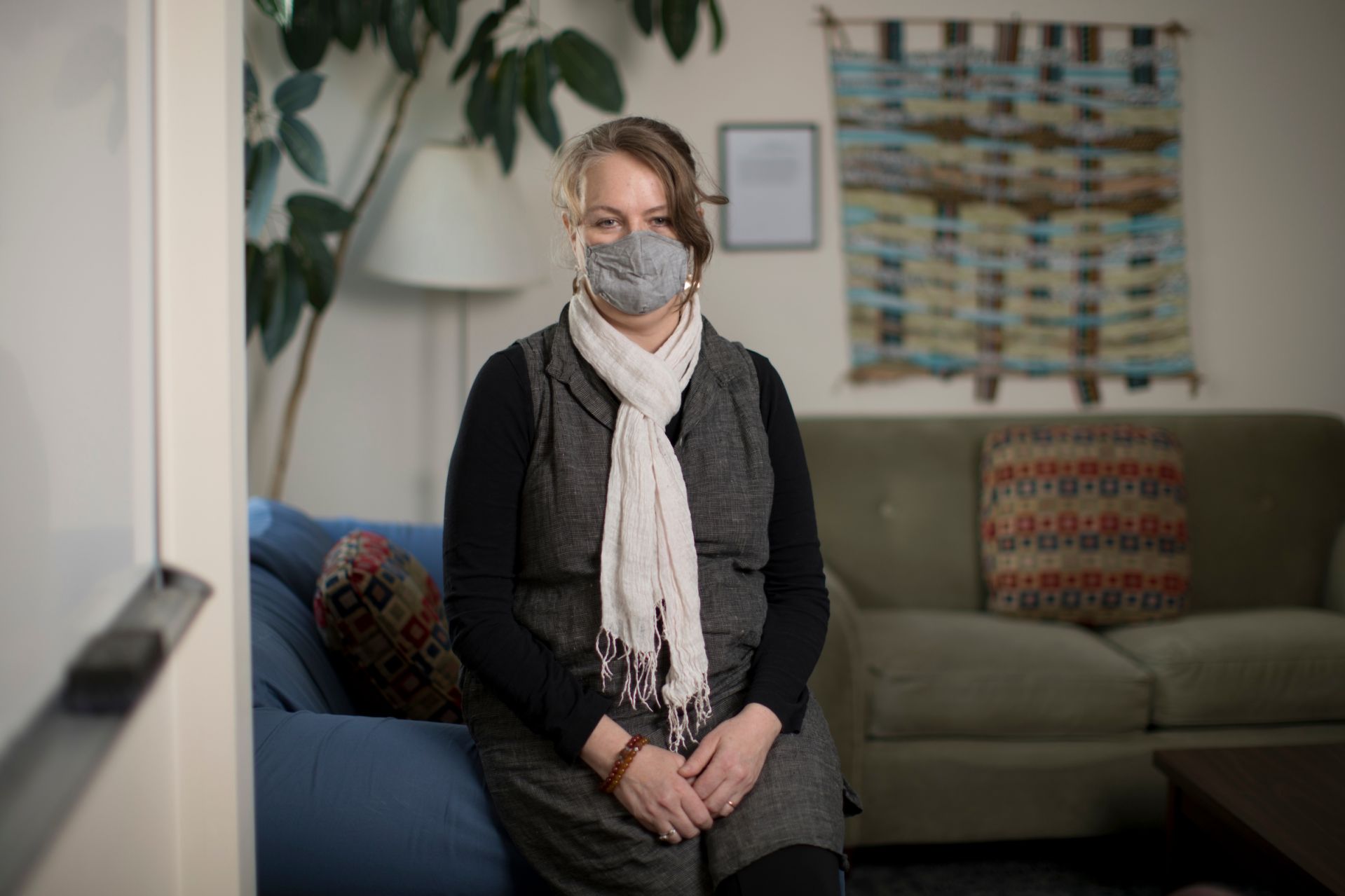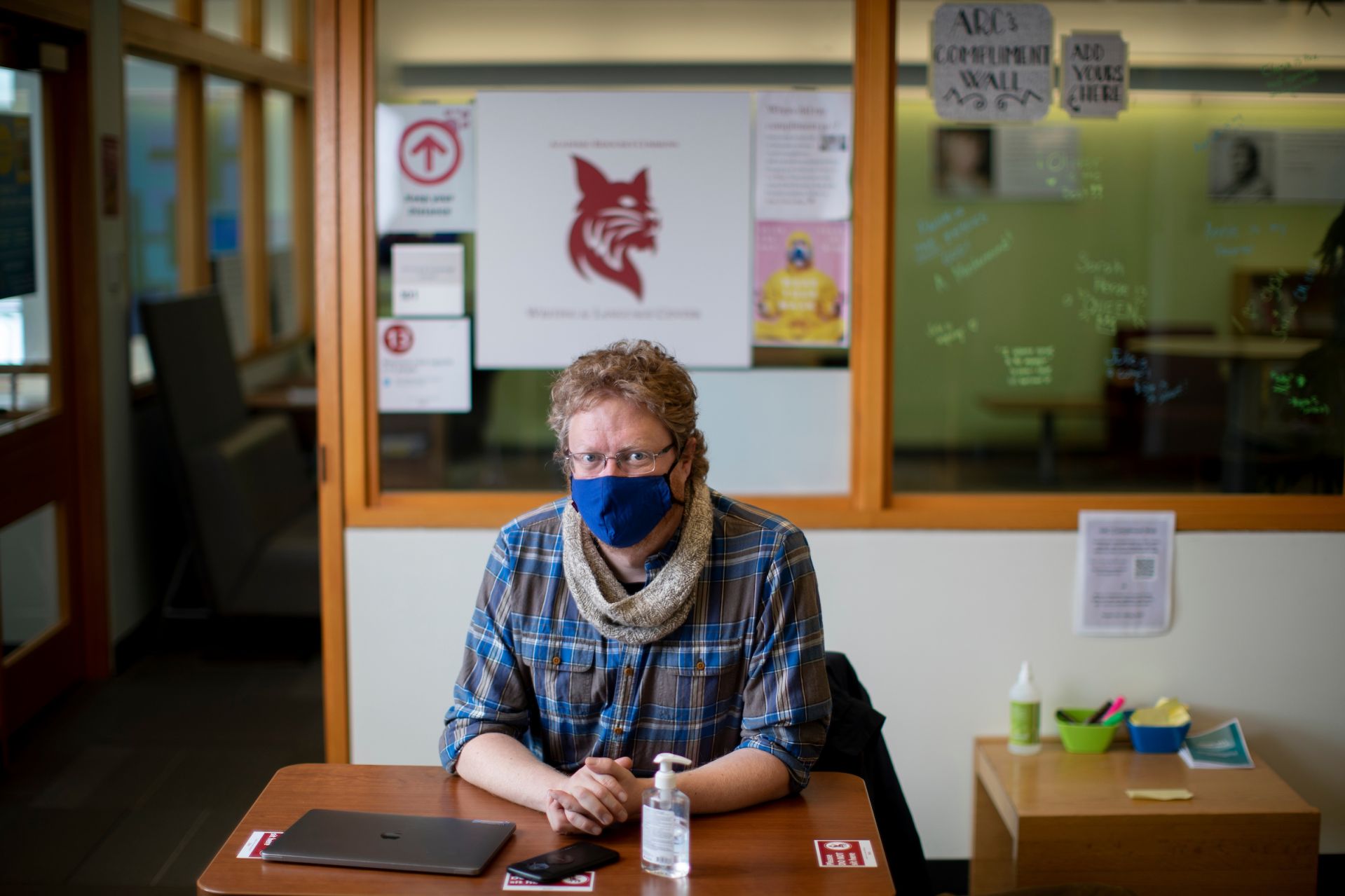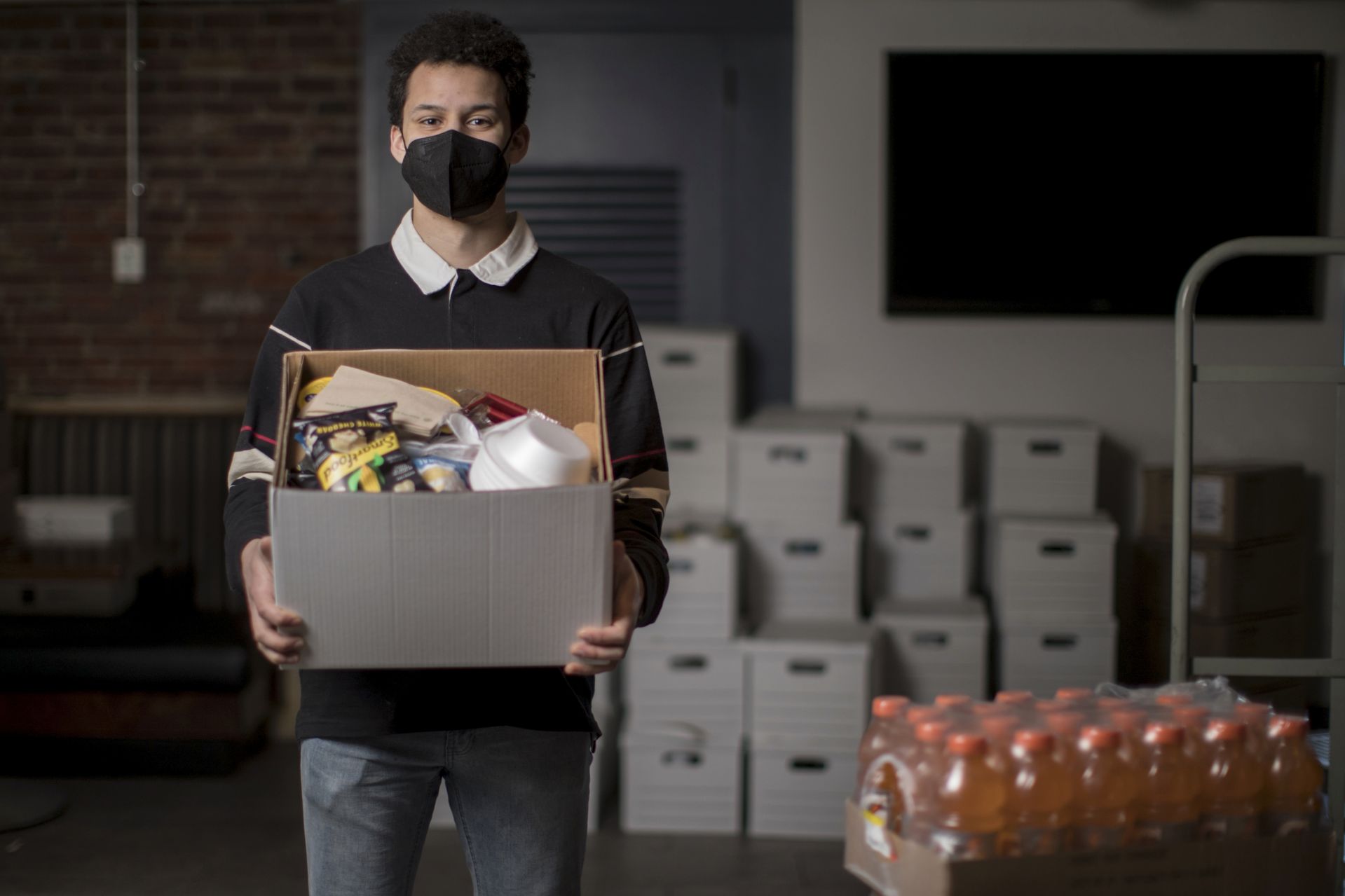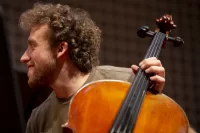
A staffer at the Harward Center takes a less-is-more approach to helping students with their community-engaged work.
A learning center coordinator finds creative ways to help students find tutoring opportunities when they’re feeling vulnerable.
And a staffer brings young-alum insights to his work at the COVID-19 Testing Center, as well as support for students who just want to talk.
Whether students are feeling down, or need help getting their feet back on the ground, they get the support they need from Bates staff, whose work helps position students for success in their work with the equally devoted Bates faculty.
Each week for the next three weeks, we’ll continue to share portraits of Bates staff members as well as stories in their own words about how they have responded to the needs of our students during a time of crisis. Totaling 21 staffers, from 19 different college offices, these Bates people rise to the challenge when students need somebody — not just anybody.
Ellen Alcorn
Ellen Alcorn works with faculty and students as associate director of community-engaged learning at the Harward Center for Community Partnerships and director of the center’s Bonner Leader Program.

Last fall, I taught a First-Year Seminar, “Reconsidering the American Dream,” remotely. Four of the students in my class were in China, unable to get here due to visa restrictions.
The experience gave me a window into the academic experience of our students and faculty during this year’s module format. The pace is fast and the workload is intense, on both sides. I learned a lot about how to make Zoom get-togethers more dynamic with music, breakout rooms, polls, and interactive screens such as Jamboard and Padlet.
I realize that students need more flexibility and informal support than usual, so I’ve tried to bring that understanding into my daily work at the Harward Center this semester.
For so many reasons, this has been such an exhausting year for many of our students. They are — as we all are — Zoom-fatigued. In the programs I direct, I’ve taken a less-is-more approach, shortening Zoom meetings and adjusting my own expectations to some degree.
I like to go where the energy is, and that’s truer this year than ever with students. What will be life-giving and generative for students? What community-engaged projects will enrich their academic lives, or allow them to explore issues of interest to them?
A spirit of listening, and trying to respond to their interests and concerns, is more important this year than ever.
Eric Dyer
As student support coordinator for Writing at Bates and the Academic Resource Commons, Eric Dyer helps provide student-focused peer tutoring and other academic support.

One of my jobs is to have answers to the question “With tutors being remote, how do I find a tutor?”
We learned last semester what works: having a tutor visit a class, usually by Zoom, and say, “Hi, I’m a tutor. There are lots of other tutors. Here’s how you access tutors.”
We have roughly 100 student peer educators. While some do in-person work here in Ladd, physically distanced from students, the vast majority of tutoring happens on Zoom now.
Remote tutoring is convenient in one sense. Tutors and students can talk for a long time without having to be in the same room, where that doesn’t necessarily work so well this year.
What is a huge challenge is just getting students to make the extra mouse clicks on a website to connect with that tutor online. It seems like it’s a bit more of a barrier than we expected, much more of a barrier than simply saying, “Hey, walk into Ladd Library, make a hard left and, there are the tutors.”
I don’t think it’s a secret that the fast pace of coursework in the modular calendar this year can feel overwhelming to students. Many feel extremely vulnerable to falling irreparably behind in the space of a day or two. When a student needs our help, they need it now, not tomorrow, and perhaps not even this evening, as opposed to this afternoon.
We try to be flexible and responsive, not just sticking to our schedule and saying, “Well, economics tutoring is tomorrow night. So come back then,” but figuring out a way to find an economics tutor right then and there, if a student needs that. It’s important to meet that student vulnerability.
Eric Viera ’18
Eric Viera ’18 is one of three Post-Baccalaureate Fellows for Residence Life and Testing, along with Max Gardner ’20 and Ariel Lam ’20. They were hired to provide additional staff support for the COVID-19 Testing Center, located in Underhill Arena, and for programs for Residence Life and Health Education.

The fall semester was a difficult adjustment for students, to say the least. For us, it was important to recognize that the pandemic affected each student differently. Comprehending the nuanced differences in experience and emotions across the student body has been essential to how we have supported them.
Our job in the Testing Center is mainly to ensure that no students miss tests without adequate reason. In the case of missed tests, we initially went straight to disciplining the student; however, as the semester progressed, we began to realize that no one was going out of their way to miss tests.
So we tried to create a positive feedback loop: rewarding students for testing rather than focusing on punishing for missing tests.
Another job is to support students who are in-room quarantine through the contact-tracing program, delivering care packages and letting them know that we are open and available to help them in any way possible. It wasn’t long ago that the three of us were Bates students, it is easy for us to put ourselves in their shoes and do little things to help them through this challenging period.
Students seem to be seeking a lot more guidance from staff this year. That’s not an outlandish notion because our COVID-19 protocols limit who they can associate with on a daily basis.
So our door in Chase Hall is always open for students if they want just to talk and take their minds off being a student during a global pandemic.



